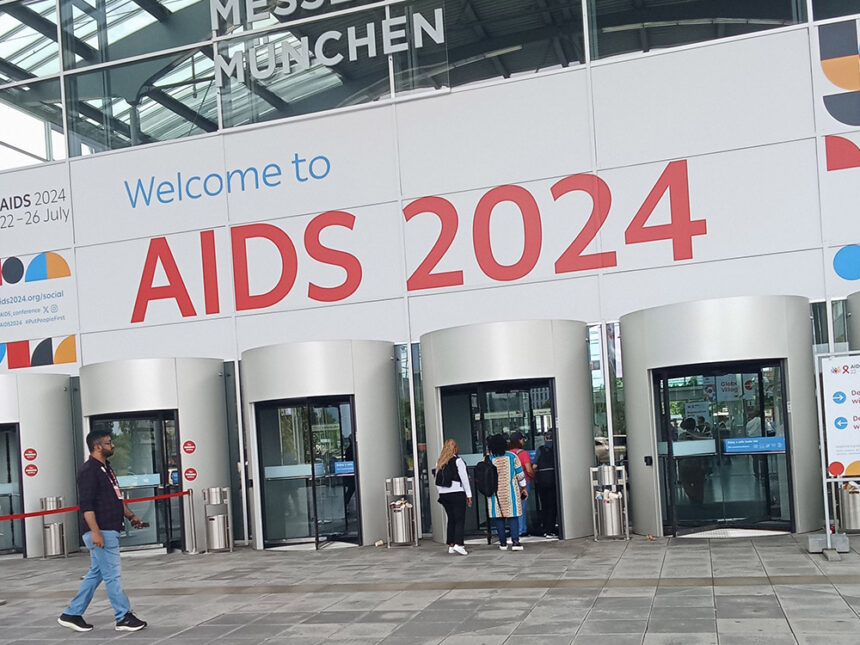By Rosemary Onchari I oncharir37@gmail.com
The world’s largest HIV/Aids conference was launched in Munich Germany, with an incredible breakthrough in global response and remission getting the requisite attention.
At least 15,000 participants, featuring doctors, scientists, public health professionals, policymakers, people with HIV, advocates, and community leaders from 175 countries are attending this year’s conference whose theme is “Putting People First”.
The 25th International Aids conference gives a platform for participants to share the latest research, bridge scientific gaps and improve healthcare services around the globe.
Speaking during the opening ceremony of the five-day conference, the International Aids Society (AIS) President Shalon Lewin said the globe had made incredible breakthroughs in response, including one case of HIV remission and cure.
“It is incredible that a twice-a-year HIV injection drug called Lenacapavir now prevents HIV. All these events are something to celebrate. Sadly, they don’t happen in a vacuum,” said the IAS President.
“All around the world we are saying the increase of regressive policies, attacks on human rights, spread of misinformation, and inadequate funding are building roadblocks in ending HIV by 2030,” she added.

She said HIV/Aids was a public health threat, and for individual well-being, there was a need for evidence and human rights-based response that respects science. “This is why we need to continue to innovate, aggregate and invest in science to deliver an effective HIV vaccine,” she said.
UNAIDS Executive Director Winnie Byanyima said the global Aids report that was launched showed that success or failure in HIV/Aids response ahead of 2030 would be determined by actions of leaders today.
Data shows progress, as nine years ago 47 per cent of people living with HIV were on treatment. Today that has increased to 77 per cent.
However, the conference was reminded that the world is not on track to end HIV/Aids by 2030. According to shared data, one person dies of HIV-related illnesses every minute making it a crisis. In Eastern Europe and Central Asia, the Middle East and Latin America, new HIV infections have gone up.
“HIV response globally is short of $9.5 billion. This gap keeps widening and some donors have pulled back and instead put at least $500 billion in the war in Ukraine,” said Byanyima.
She said half of the countries in sub-Saharan Africa face the highest burden of HIV/Aids. These countries are in debt, she said, calling for their restructuring to pay for their HIV response.
“We also need to get the long active treatment for prevention and treatment to low- and middle-income countries in Africa, Asia, Middle East, and Latin America, with generic production bringing the injectable treatment of twice a year to a person,” said Byanyima.
She added there is an urgent need to tackle discrimination and the stigma of marginalized people from lifesaving services and political leaders should decriminalize same-sex relationship, sex work.
Friends of the Global Fight Against AIDS, Tuberculosis, and Malaria Chris Collins said the global response to HIV is at crossroads, there is an ability to end the epidemic and save lives, and strengthen health systems.

The US had strong commitments for 20 years. Leaders across political parties give millions to HIV response. For instance, PEPFAR funding in the response to HIV remained solid. Up to 5 billion babies born by HIV-positive mothers are free from HIV. PEPFAR also provides care to 7 billion orphaned children and caregivers.
PEPFAR ambassador John Nkengasong said it was unfortunate that in 2030 millions of people would still be living with HIV/Aids. “We have launched an action plan that aims to strengthen key populations that are more effective and one is to ensure that funding is maintained and sustained within health the programme,” said Nkengasong.
German Chancellor Olaf Scholz reaffirmed his government’s commitment to the global campaign against Aids, including the Global Fund, and appealed to other global powers to do the same. Germany contributes €1.3 billion to global funds in the current cycles contributing to the saving lives of 59 billion people.









